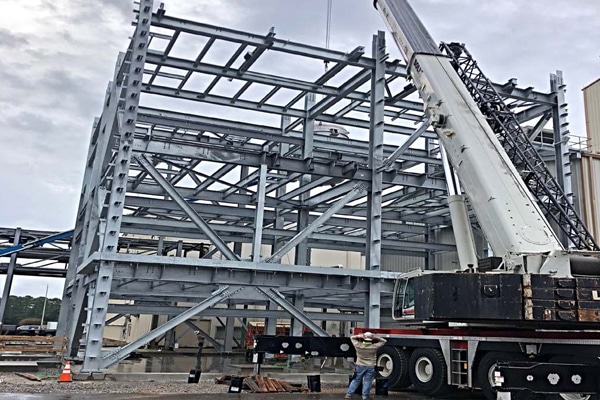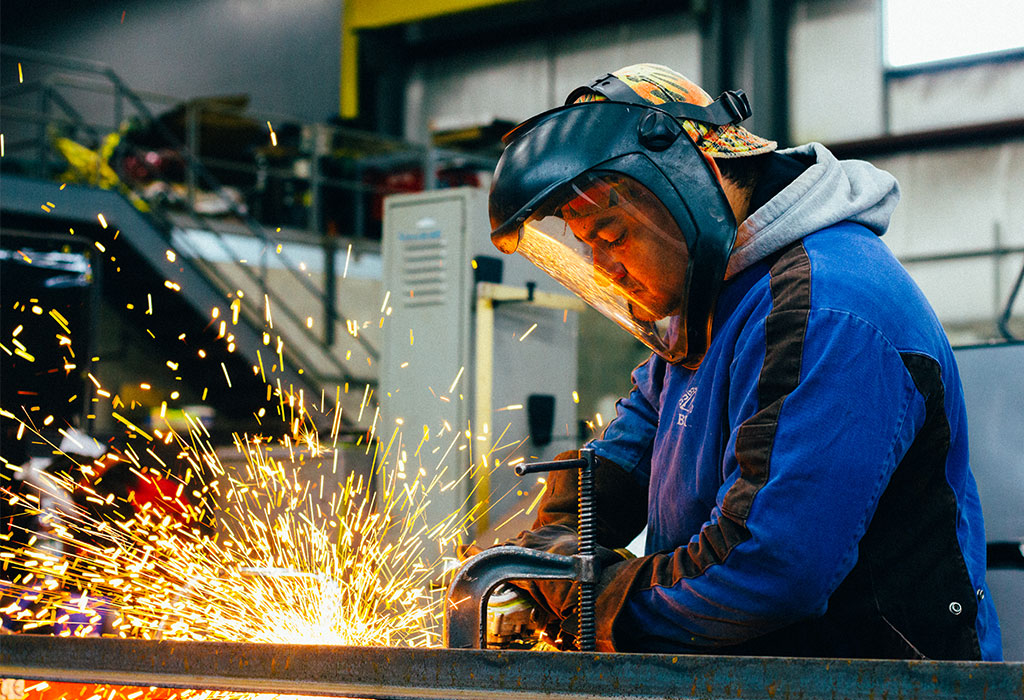Alpha Reo: Blazing A Trail in Reinforced Steel Solutions
Alpha Reo: Blazing A Trail in Reinforced Steel Solutions
Blog Article
The Ultimate Manual on Customized Steel Manufacture Solutions for Structural Projects
In the realm of architectural tasks, the importance of personalized steel construction remedies can not be overstated. From the foundational understanding of steel manufacture basics to the elaborate procedure of choosing one of the most ideal products, every action in this journey plays an essential role in the supreme success of a project. As we browse through the intricacies of layout considerations, manufacture processes, and quality assurance steps, a comprehensive handbook functions as an assisting light for experts seeking excellence in steel fabrication options. Keep tuned to discover the understandings that can transform the means structural tasks are approached and executed.
Recognizing Personalized Steel Manufacture Essentials
Looking into the basics of custom-made steel construction offers insight into the intricate procedure of changing raw steel right into tailored structural components. Custom steel manufacture is a customized production method that involves cutting, shaping, and assembling steel products to produce special structures according to specific task demands. Comprehending the basics of custom steel manufacture is vital for making sure the successful implementation of architectural projects.
The procedure normally begins with the assessment of task specs and design demands. This initial stage includes detailed preparation and partnership in between fabricators, developers, and engineers to establish the most ideal method for making the steel components. Accuracy is key throughout the fabrication process, as also minor inconsistencies can impact the architectural integrity of the final product.
Numerous methods, such as reducing, welding, and shaping, are employed to transform raw steel right into the desired structural components. Competent makers utilize sophisticated equipment and tools to guarantee precision and uniformity throughout the fabrication process. Quality assurance measures are executed to validate the honesty of the fabricated elements prior to they are constructed on-site, ensuring compliance with market criteria and project specifications.
Choosing the Right Steel Products

Primarily, the type of architectural task and its certain demands play an important role in determining one of the most appropriate steel materials. Factors such as the load-bearing ability, environmental conditions, and wanted life expectancy of the structure will certainly determine the grade and kind of steel that must be utilized.
Moreover, the physical properties of the steel, consisting of ductility, strength, and weldability, have to line up with the task's requirements to guarantee ideal efficiency and sturdiness (steel fabrication melbourne). Additionally, factors to consider such as corrosion resistance, cost-effectiveness, and schedule of the steel materials must also be taken into consideration throughout the choice procedure
Design Considerations for Architectural Jobs
Structural jobs necessitate careful attention to create factors to consider to guarantee both capability and safety are focused on throughout the building and construction process. When it comes to making structural jobs, numerous key elements have to be taken into account to ensure the success of the undertaking. By carefully thinking about these facets throughout the design phase, designers and engineers can make sure the architectural task's success from conception to completion.
Simplifying Manufacture Processes for Efficiency

Moreover, executing lean production pop over here concepts can considerably boost efficiency in steel construction. By lessening waste, optimizing workflow, and improving interaction in between different teams associated with the manufacture procedure, projects can be completed a lot more promptly and with greater quality standards.
Moreover, developing an efficient manufacturing schedule and workflow can help in prioritizing tasks, designating sources properly, and conference task deadlines quickly. By having a clear plan in location and on a regular basis checking progression, any potential bottlenecks or delays can be identified and additional hints addressed promptly, guaranteeing effective and smooth construction processes for structural projects.
Quality Control and Task Monitoring in Steel Manufacture
To make certain the effective execution of steel construction projects, meticulous quality control measures and reliable task administration methods are important components in maintaining accuracy and conference client assumptions. Quality assurance in steel construction involves strenuous assessments at different stages of the manufacture process to verify conformity with job specifications and industry criteria. This includes product screening, dimensional checks, and weld evaluations to ensure architectural stability and safety.
Task administration plays an essential duty in coordinating the various facets of steel construction projects, such as organizing, resource appropriation, and communication amongst employee. A well-defined task plan with clear purposes, turning points, and timelines helps to keep an eye on progress and attend to any possible issues proactively. Efficient communication between all stakeholders, consisting of clients, designers, fabricators, and specialists, is crucial for ensuring that the job proceeds efficiently and meets the wanted quality standards.
Conclusion
Finally, customized steel fabrication plays a critical function in architectural jobs by offering tailored options using the right materials and style factors to consider. Performance in fabrication processes, high quality control, and efficient task monitoring Discover More Here are essential for successful outcomes. By comprehending the fundamentals of custom-made steel manufacture and applying structured procedures, task teams can provide durable and top quality frameworks that meet the particular requirements of their clients.
Customized steel manufacture is a specialized manufacturing technique that entails cutting, shaping, and setting up steel materials to develop distinct frameworks according to particular task needs.To make sure the successful implementation of steel construction jobs, thorough high quality control measures and efficient job management methods are important elements in maintaining precision and meeting client expectations. Quality control in steel fabrication involves strenuous inspections at various phases of the manufacture process to confirm compliance with task specifications and sector requirements (Alpha reo).Job management plays an important role in working with the different facets of steel construction projects, such as organizing, resource appropriation, and communication amongst team participants.In final thought, personalized steel construction plays a crucial function in structural jobs by providing tailored remedies utilizing the right materials and layout considerations
Report this page